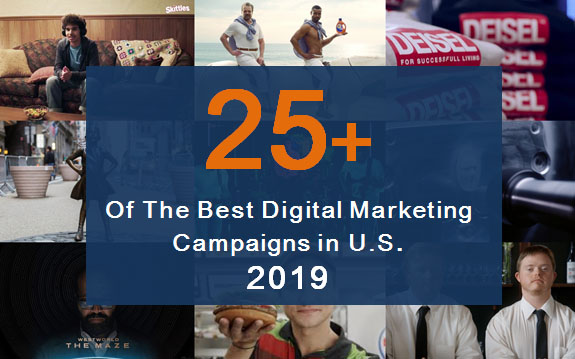Data Science in Marketing — What Is It? And How to Get Started
Data-Driven Marketing | Jul 31, 2024
Have you ever looked for sunglasses online and then found related advertisements on social media and other websites continuously, or got programmatically attacked with undesired advertising emails about the same products?
Do you know how does YouTube show all your favorite videos on your home screen?
Or do you ever think about how when you’re chatting with your best friend the keyboard suggests to you the exact words that you want to use in your sentence?
Well, these are what we can call “Data Science Applications”…
The use of the term Data Science is increasingly common, but what does it exactly mean? What skills do you need to become a Data Scientist? What are the practical ways to implement data science in marketing? What are the marketing data science trends?
These are some of the questions that will be answered in this article.
What Is Data Science?
Data Science is a blend of various methods with the goal of discovering hidden patterns from the raw data and solving analytically complex problems and is primarily used to make decisions and predictions.
Some of the methods used in data science include machine learning, probability models, signal processing, statistical learning, data mining, database, data engineering, data conversion, uncertainty modeling, pattern recognition and learning, and computer programming among others.

What Exactly Is Data Science? Image Source: TechiExpert
Data science is not limited to big data, which in itself is a big field because big data solutions focus mainly on organizing and pre-processing the data rather than analyzing the data.
Over the last few years, data science has become an integral part of many industries like marketing optimization, marketing analytics, agriculture, risk management, fraud detection, and public policy among others.
What Skills Do You Need to Become a Data Scientist?
There are many technical and non-technical skills that are essential to success in data science. Non-technical skills refer to personal skills like having strong business acumen, strong communication skills, and great data intuition. Such skills can be difficult to assess simply by looking at educational qualifications, certifications and so on.
Concerning the technical skills, there are must-have skills you required to become a Data Scientist:
- Basic Education: The most common fields of study are Mathematics and Statistics. You could earn a Bachelor’s degree in Computer science, Social sciences, Physical sciences, and Statistics. A good understanding of statistics is important as a data scientist.
- Programming Skills: They’re the statistical programming language, like R or Python coding, and a database querying language like SQL.
- Machine Learning and AI: If you’re working at a large company with huge amounts of data (e.g Amazon) or the product itself is especially data-driven (e.g. Netflix, Google Maps, Uber), then familiarity with machine learning and AI methods is a must. You need to learn about Machine learning techniques such as supervised machine learning, logistic regression, decision trees, etc.
It’s not required to become an expert on how these algorithms work as machine learning techniques can be implemented using Python or R. - Data Visualization & Communication: It’s incredibly important, especially with young companies that are making data-driven decisions for the first time. You should be familiar with data visualization tools like ggplot, matplotlib, Tableau, or d3.js. It is critical to be familiar with the principles behind visually encoding data and communicating information not just the tools necessary to visualize data.
Learning the Data Science Skills, Landing the Dream Job
Data science jobs are some of the most in-demand and highest-paying occupations on the planet. But where can you learn all these skills to be able to face the next data science job search challenge?
Let’s take a look at some of the best places you can hunt for data science training and courses.
- Data Science Course — Intellipaat
- Introduction to Data Science — Metis
- Data Science Specialization — Coursera
- Applied Data Science with Python Specialization — Coursera
- CS109 Data Science — Harvard
- MicroMasters Program in Statistics and Data Science — edX
- Python for Data Science and Machine Learning Bootcamp — Udemy
- Data Science Diploma: Machine Learning with Python — Institute of Management Professionals (IMP)
The Implementation of Data Science in Marketing
For marketers, the staggering amount of data led by new innovations is a gold mine. If this data could be accurately processed and analyzed, it can deliver enlightening insights that marketers can use to target customers. However, decoding huge chunks of data is a gigantic task. This is where Data Science can immensely help.
Data science can be used to enhance various areas of marketing including content marketing, SEO, customer responsiveness and engagement, real-time marketing and data-driven marketing campaigns.
Let’s take a look at the top applications of data science in marketing:
Profiling Audiences/Customers
There are multiple analytics tools enable tracking consumer activity online and allow you to accumulate an array of information about the customer’s interest and activities. All collected information is saved in your ‘user profile’ by the search engine and all the other websites you have visited.
- Optimizing Marketing Budget
The central goal of any marketer is to derive maximum ROI from their allotted budgets but achieving this is always tricky and time-consuming and things don’t always go according to plan.
Data scientists have the ability to build a spending model that can help using the budget better by analyzing a marketer’s spend and acquisition data. This spending model can help marketers distribute their budget across channels, locations, and campaigns to enhance their key metrics.
- Building a Data-Driven Pricing Strategy
With data science, businesses can use many different analysis techniques to identify their pricing strategy. Some of these include market cost analysis, segmentation, competitor analysis, targeting, individual customer preferences, past purchase history, economic situation, etc.
- Identifying the Right Channels
By using the time series models, the data scientists can compare and identify the types of lift seen in various channels. This can be highly beneficial as it shows the marketer exactly which channel and medium are delivering proper returns and giving an adequate lift for the marketer.
- Building a Data-Driven Content Marketing Strategy
Data science helps content marketers to deliver the best possible piece of content to customers through their preferred channel, at the time they are most likely to consume the content. Moreover, machine learning can help with crunching all the data for and putting it in a context for digital marketers.
Sentiment Analysis
Businesses can use data science to gain a better understanding of their customer beliefs, opinions, and attitudes. Also, they can monitor how customers react to marketing campaigns and whether they’re engaging with their business or not.
- Social Media Marketing
Today’s customers are highly active on social media networks. Data science can be used to tell marketers which leads are exploring their social media page, what content they clicked on and much more. With such insights, they can formulate a proper social media engagement strategy.





